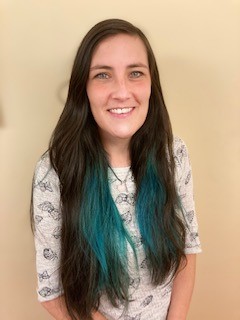Meet our 2021/22 Pre-doctoral Fellowship award holders
Katrina McNally
Senior Practitioner - Social Worker
Greater Manchester Mental Health NHS Foundation Trust
"How can we empower community mental health team staff to routinely inquire about trauma and abuse?"
- More info about Katrina and her research
What is your current job title and current role?
I am currently a senior practitioner and a social worker in a community mental health team for Greater Manchester Mental Health NHS Foundation Trust. I am also an approved mental health professional with Manchester City Council.
Who are your Pre-doc supervisors?
- Filippo Varese
- Karina Lovell
What is your field of research?
The routine inquiry into trauma, abuse and adverse childhood experiences.
How are you currently involved in research in your job role?
Currently the research champion within the team. Linking in with researchers in the Trust, promoting these in the team and encouraging participation and referrals.
Why are you interested in research and this ARC Pre-doctoral fellowship?
I have always been interested in how we can improve services for both patients and staff and I also have a fiery passion for trauma informed care. The pre-doctoral fellowship allowed me to maintain my clinical practice and to develop knowledge and skills within research in my preferred topic area. It has helped me to start to bridge the gap between research and practice and has given me space as a practitioner and as a researcher to facilitate development and growth.Research question
How can we empower community mental health team staff to routinely inquire about trauma and abuse?
Research summary
My project is surrounding supporting staff to inquire about trauma and abuse through co-production workshops of people with lived experience of trauma and community mental health services. There is vast research already available to show that secondary mental health services staff should be inquiring about trauma and abuse in an informed way but there is limited support for staff to develop the right skills to do this effectively. A co-produced training manual and co-delivered training module will be delivered to community mental health team qualified staff members. A mixed-method evaluation will be used to analyse the effectiveness of this in impacting staff knowledge, skills and understanding of the routine inquiry into abuse and trauma within this cohort. This will be done through a range of questionnaires, staff interviews and business intelligence reports to monitor any changes.
What research training courses/modules are you accessing as part of your Fellowship?
Critical appraisal and evidence synthesis (The University of Manchester PG stand alone module within the MRes). Good Clinical Practice Certificate (National Institute of Health Research).
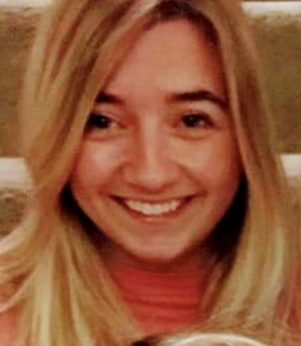 Elizabeth Walkden
Elizabeth Walkden
Senior Specialist Speech and Language Therapist
Manchester University Hospitals NHS Foundation Trust
"Contributing factors to dysphagia and laryngeal trauma in Lung transplantation"
- More info about Elizabeth and her research
What is your current job title and current role?
I am currently a Senior Specialist Speech and Language Therapist working at Wythenshawe Hospital. However, I have recently been successful in securing The Clinical lead for Acute SLT services across Manchester Royal Infirmary
Who are your Pre-doc supervisors?
- Dr Sorrel Burden
- Ms Sarah Wallace
What is your field of research?
Dysphagia development in those patients who have heart and Lung transplant surgery.
How are you currently involved in research in your job role?
Within Wythenshawe SALT team there is a strong ethos of supporting research/audit in evaluating services. In my current role I lead the acute and critical care caseload which includes evaluating our processes, efficiency and quality of service. Therefore, I regularly contribute to research/audit activity within the team.
Recent/current projects from the last 18 months include:
- Submitted a publication on the use of pharyngeal electrical stimulation to improve dysphagia in ICU populations.
- 2 completed research posters evaluating lung/ heart transplant
Why are you interested in research and this ARC Pre-doctoral fellowship?
In my current and future role I support a team of SLTs to provide care and am responsible for evaluating the service we provide to patients and striving to make improvement within the limited resources that we have. As a small professional group, we all have a responsibility to improve the quality of evidence and research that supports our work and improves outcomes for patients. We also have a responsibility to improve awareness and highlight the value SALT input can have on patient outcomes.
This research I am completing should help us understand predictive factors for dysphagia post-transplant. This would also help SALT to provide proactive management and early intervention.
Last year I completed an ARC GM internship with the Evaluation theme. As part of this I completed a module (Critical appraisal and evidence synthesis) of the Clinical MRes masters programme.
Research question
Contributing factors to dysphagia and laryngeal trauma in Lung transplantation
Research summary
To explore characteristics of the lung transplant cohort for predictive/contributing factors of dysphagia
I am proposing a cohort study of this population, either retrospective or prospective looking at the transplant caseload as a whole. This will include preoperative, intra-operative and post-operative outcomes. Examples of which are:
- Pre-surgical characteristics will include any physical scores, eating and drinking scores, pneumonia rates and Cardiac/ lung function scores
- Intra-operative will include any surgical complications e.g., arrest, intubation difficulties and prolonged surgery times
- Post- surgical characteristics will include outcomes e.g., need for ventilation, intubation times, physical scores, pneumonia rates and Cardiac/ lung function scores
This would be with the aim to identify the prevalence and impact of dysphagia in the cohort as a whole. This would include , any predisposing factors and a timeline for expected recovery.
What research training courses/modules are you accessing as part of your Fellowship?
I am completing the full time Clinical Research Masters (MRes) at Manchester University
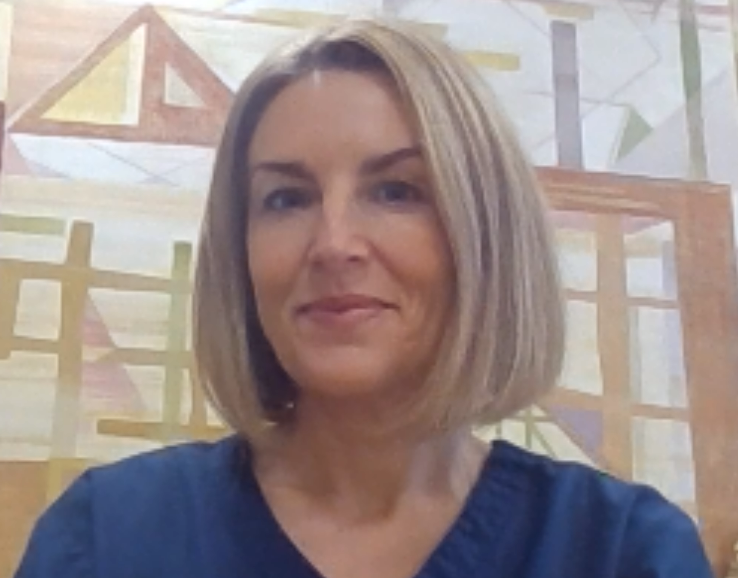 Deborah Ganderton
Deborah Ganderton
Consultant Speech and Language Therapist
The Christie NHS NHS Foundation Trust
"Explore how Spech and Language Therapists can integrate swallowing outcome measures into routine clinical practice for all head and neck cancer patients"
- More info about Deborah and her research
 What is your current job title and current role?
What is your current job title and current role? Consultant Speech and Language Therapist – I currently lead the Speech and Language Therapy team at The Christie NHS Foundation Trust, providing input for those whose cancer or treatment causes issues with communication, voice or swallowing.
Who are your Pre-doc supervisors?
- Sorrel Burden,
- Helen Hawley-Hague,
- Heulwen Sheldrick
What is your field of research?
Swallow outcomes measures following treatment for Head and Neck cancers
How are you currently involved in research in your job role?
In my job role I contribute to large multi-centre randomised controlled trials in the field of head and neck cancer (HNC). I am involved with providing patients with information about trials, conducting swallow assessments following specific trial protocols, and completing appropriate study documentation whilst working closely with the wider trial teams.
I also collaborate with Speech and Language Therapy colleagues around the UK on Allied Health Professional-led research initiatives to improve the service we provide to patients.
Why are you interested in research and this ARC Pre-doctoral fellowship?
As a Speech and Language Therapist providing clinical leadership to a team within the NHS, I am constantly questioning the effectiveness of our interventions and trying to improve the service we provide to patients, within the constraints of the limited resources we have available.
Research initiatives are a means of evaluating the impact of HNC treatment on patients’ short and long-term function and quality of life, along with the benefits of the interventions provided by Speech and Language Therapy. This enables us to provide evidenced-based care and target precious resourcing more effectively towards patients who are most likely to need greater support or specific interventions.
I chose this fellowship as ARC-GM aims to promote regional expertise to support and enhance the impact of applied health and care research to improve services for our local population, and this fits with the aim of my research; to undertake high quality research to improve services for HNC patients.
Research question
I am currently working with my supervisory team to develop my research question.
Research summary
Swallowing impairment (dysphagia) is a common, debilitating side effect of treatment for HNC. Speech and Language Therapists (SLTs) are core members of the multi-disciplinary team (MDT) to both assist those whose cancer or treatment causes difficulty with swallowing, and to contribute to discussions on treatment planning
Currently there is no consensus to the most appropriate assessment of swallowing or outcome measure to use within this clinical field which makes it difficult for clinicians to draw conclusions from the current available literature. This means that information on functional outcomes following treatment is often based on clinical opinion without evidence-based consensus, especially as treatments for HNC are progressing quickly.
For my proposed research I would like to explore how SLTs can integrate swallowing outcome measures into routine clinical practice for all HNC patients to continue to build the evidence base, to explore how outcome measure data can be used to provide meaningful pre-treatment information for patients, and how outcome measure data can be used to support MDT discussions around treatment decisions.
What research training courses/modules are you accessing as part of your Fellowship?
MClinRes modules – Research Design, Quantitative Analysis and Statistics with Manchester University
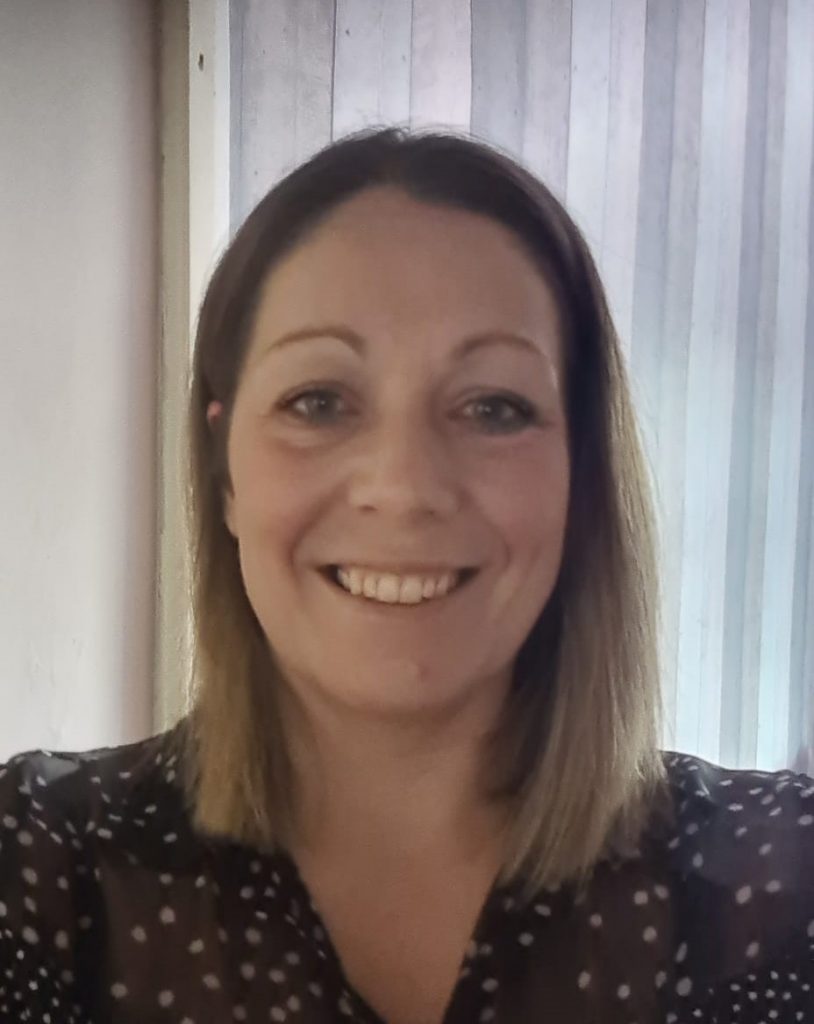 Rebecca Chamato
Rebecca Chamato
Advanced Clinical Practitioner
Manchester University Hospitals NHS Foundation Trust
"Assess long term impact on Quality of Life of patients admitted to hospital with Pulmonary Embolism."
- More info about Rebecca and her research
What is your current job title and current role?
The clinical role which I undertake involves caring for a range of patients, from acutely unwell presentations to the ED, through to chronic disease management. I lead on the development of the respiratory ambulatory care unit and the outpatient management of pulmonary embolism (PE) pathway. My specialist interest is Pulmonary Embolism and Pulmonary Hypertension.
I am undertaking my pre-doctoral fellowship which I have identified 4 key priority areas to to equip me with the skills, knowledge and ability to successfully undertake a PhD in my specialist area.
Who are your Pre-doc supervisors?
- Dr Tim Felton,
- Dr Helen Hurst,
- Professor Heather IIes-Smith
What is your field of research?
Impact on Quality of Life post Pulmonary Embolism Diagnosis
How are you currently involved in research in your job role?
Undertaking the pre-doctoral has given me the scope to expand my involvement in research as listed below
- Associate PI scheme to STOP-APE trail – commenced Feb 2020
- GCP e-learning updated- February 2022
- Pre-doctoral fellowship Sept 2021-sept 2022
- Research methods module – University of Salford 2021- passed
- QI project on understanding antibiotic prescribing in the management of Community Acquired Pneumonia and how guidance translates into clinical practice as part of my MSc studies
- Improvement Science for Leaders – Haelo Quality Improvement
- Support of the recruitment to Recovery in first wave of covid -19
- Support tier 2 recruitment to phos-covid study
- Siren study participant
- Abstract Submission and Poster Presentation: Can Advanced Practitioners Improve the Management of Pulmonary Embolism in the Ambulatory Care Setting?
- British Thoracic Society - Summer 2019
- Abstract Submission
Why are you interested in research and this ARC Pre-doctoral fellowship?
Having worked in a variety of roles, I have always had a questioning mind .However, over the last few years I feel ready to take this a step further and undertake my own research to allow me to formulate evidence based solutions and contribute to transforming healthcare in the future. The ARC pre doctoral fellowship interested me as I had some gaps In knowledge that I wanted to fulfil to enable me to pursue my own research.
There are key themes which my proposal fits under and the support that was offered and research network that being successful with ARC would provide me would enable me to grow and develop into the clinical academic I aspire to be whilst remaining clinical 50% of my time.
Research question
Assess long term impact on Quality of Life of patients admitted to hospital with Pulmonary Embolism.
Research summary
Throughout the pre doctorate I have identified key priorities to support further research applications- initial summary as detailed below:
- Following the scoping exercise of current practices and a literature review a research question will be then proposed from research gaps identified.
- One potential method would be to identify an intervention that has been guided from these reviews to improve outcomes relating to QOL and reducing hospital readmissions
- This therefore would likely be a controlled trail however initially a pilot study would be undertaken first and possibly a qualitative study to explore patient experiences, views and understanding of their condition and follow up to obtain baseline data. Using a mixed methods approach and the MRC complex intervention framework to develop an intervention, a feasibility study would then be undertaken involving the intervention would make up some of the work involved in the proposed PhD
- Hypothesis: Following guidelines could improve the management of Pulmonary Embolism and ongoing care and improved follow up for PE by introducing specific targeted interventions, a coordinated rapid follow up and psycho-social support on discharge could improve patient’s outcome and QoL, reduce readmissions and ongoing disability
What research training courses/modules are you accessing as part of your Fellowship?
- MSc Research Methods Module – 30 credits – University of Salford- completed
- GCP training
- PPIE training ( e-learning ) and involvement in focus groups- VOCAL
- Associate PI Scheme- as part of Multicentred RCT involving pulmonary Embolism
- Thrombosis UK training courses
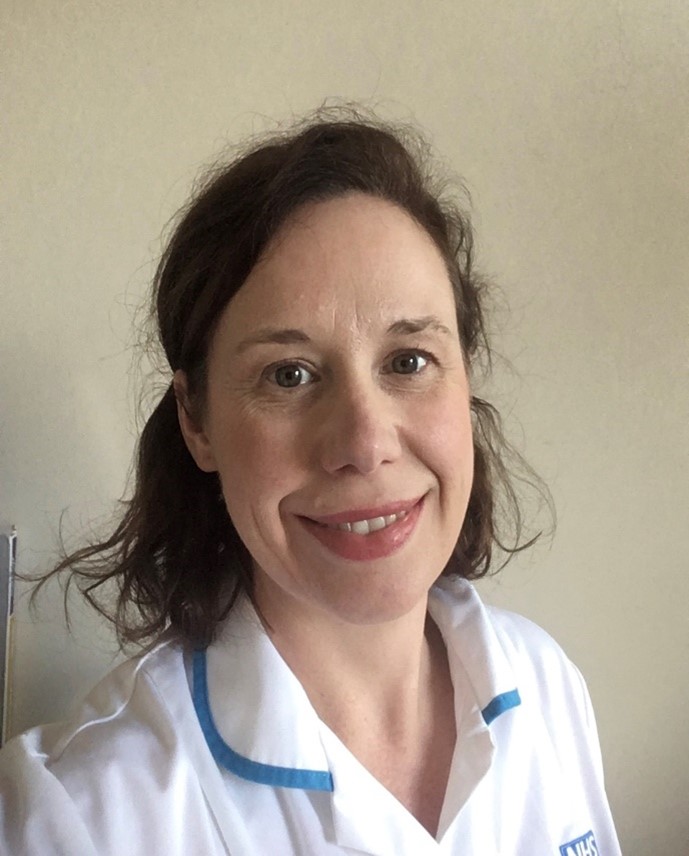 Beth Kilmartin
Beth Kilmartin
Highly Specialist Speech and Language Therapist - Hearing Impairment and Deafness
TBC
"What are the experiences of families and deaf multilingual children when developing language? In what ways does the use of different languages promote and facilitate psychosocial and functional outcomes for deaf multilingual pre-school children?"
- More info about Beth and her research
What is your current job title and current role?
Highly Specialist Speech and Language Therapist (Hearing Impairment and Deafness)
My role is the clinical lead for babies, children and young people with hearing impairment and deafness. I work across Oldham and Heywood, Middleton and Rochdale providing specialist assessment and treatment for patients with permanent hearing loss. I plan, deliver, and evaluate services for this population for working jointly with partners in health and education.
Who are your Pre-doc supervisors?
- Dr Paul Conroy
- Dr Janine Owens
- Dr Sean Pert
- Dr Suzi Willis
What is your field of research?
Communication outcomes for deaf multilingual children. Specifically deaf children from families who use more than one spoken language.
Why are you interested in research and this ARC Pre-doctoral fellowship?
I have been practising as a Speech and Language Therapist specialising in deafness for the last ten years. I had begun to recognise that the families that I worked with from Pakistani and Bengali communities were not reflected in the research literature. I was interested in understanding the experiences of deaf multilingual children and their families.
To understand the beliefs and values that influence the development of communication, wellbeing and family connectedness and how I could develop my clinical practice and improve patient centred care. On a professional level, the ARC Pre-doctoral fellowship provided the opportunity to develop new skills and knowledge. I wanted to develop my career in a way that would enhance my clinical practice. I am in the early stages of my research career and the ARC Pre-doctoral fellowship has provides the supportive environment so that I can develop my research skill alongside my clinical practice.
Research question
What are the experiences of families and deaf multilingual children when developing language?
In what ways does the use of different languages promote and facilitate psychosocial and functional outcomes for deaf multilingual pre-school children?
Research summary
The research to be developed will comprise of two studies:
- Study one: A systematic review of the literature related to deaf multilingual children language use and language outcomes.
- Study two: An ethnographic study that seeks to explore the experiences of deaf multilingual children and their families. Embedded within the observations will be a study of language use within the families of deaf multilingual children.
Participants will be the families of deaf multilingual children aged 3-5 years from Pakistani and Bengali communities living in England. It will involve participant observation through fieldwork and interviews with deaf multilingual children and their families.
The study will produce a rich, thick description of patterns of behaviours, beliefs, and values for deaf multilingual children and their families (Richards & Morse, 2012). By using themes from the literature relating to Family Language Policy (Spolksy, 2012), Parental Impact Belief, (De Houwer, 1999) and Group Socialization Theory (Harris, 1995) as a framework for analysis, the data generated will illustrate how deaf multilingual children and their families create meaning within their communities.
This project will produce new knowledge about the experiences of deaf multilingual children and their families. There is currently no research of this kind relating specifically to the Pakistani and Bengali communities living in England.
The knowledge produced in this study will be used to audit current clinical practice for deaf multilingual children from Pakistani and Bengali communities living in England. This will lead to changes in practices that improve patient-centeredness and outcomes for deaf multilingual children. Specifically, enhancing guidance for parents of deaf multilingual children to facilitate multilingual language development and clinical guidance on language use during language interactions in the home and in therapeutic instruction.
What research training courses/modules are you accessing as part of your Fellowship?
- Research Design Course Unit: part of the master’s in clinical research at The University of Manchester
- Introduction to Ethnographic Research Methods: The University of Aberdeen.
